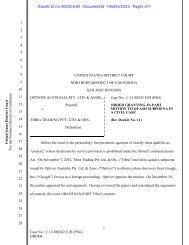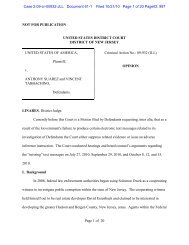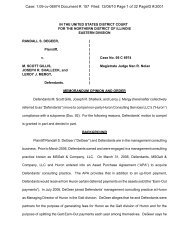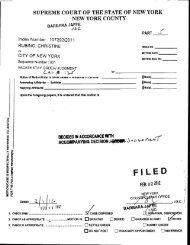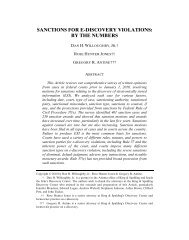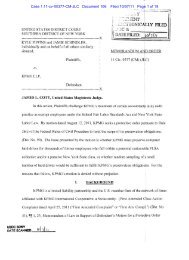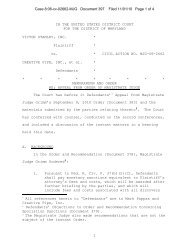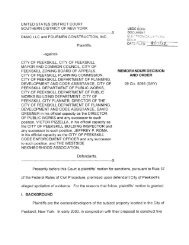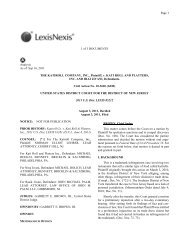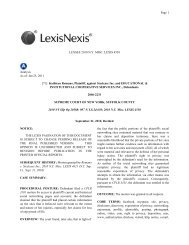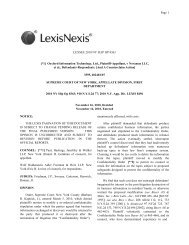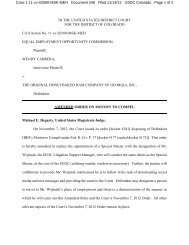Rimkus Consulting Group Inc. v. Cammarata - Ballard Spahr LLP
Rimkus Consulting Group Inc. v. Cammarata - Ballard Spahr LLP
Rimkus Consulting Group Inc. v. Cammarata - Ballard Spahr LLP
Create successful ePaper yourself
Turn your PDF publications into a flip-book with our unique Google optimized e-Paper software.
Case 4:07-cv-00405 Document 450 Filed in TXSD on 02/19/10 Page 113 of 139<br />
internet. The defendants assert that <strong>Rimkus</strong>’s pricing information is not entitled to protection<br />
because <strong>Rimkus</strong> shares that information with its clients. The defendants further contend that<br />
there is no evidence in the record that they took or used <strong>Rimkus</strong>’s client, pricing, financial,<br />
or business plan information.<br />
<strong>Rimkus</strong> responds by pointing to this court’s August 13, 2008 opinion, which stated<br />
that <strong>Rimkus</strong>’s “customer database, pricing information, and annual business plan are entitled<br />
to trade secret protection.” (Docket Entry No. 159 at 49). <strong>Rimkus</strong> argues that the contact<br />
information for many of the <strong>Rimkus</strong> clients the defendants solicited in November and<br />
December 2006 was not publicly available at that time. <strong>Rimkus</strong> contends that the evidence<br />
in the record raises a fact issue as to where the defendants obtained the names and email<br />
addresses and whether that information was entitled to protection as <strong>Rimkus</strong>’s confidential,<br />
proprietary, or trade secret information. <strong>Rimkus</strong> argues that the evidence in the record,<br />
including the September 30, 2006 and April 6, 2008 emails Bell forwarded to himself, raises<br />
fact issues as to whether the defendants took and used confidential <strong>Rimkus</strong> information.<br />
Texas law defines a “trade secret” as a “formula, pattern, device or compilation of<br />
information used in a business, which gives the owner an opportunity to obtain an advantage<br />
over his competitors who do not know or use it.” Triple Tee Golf, <strong>Inc</strong>. v. Nike, <strong>Inc</strong>., 485<br />
F.3d 253, 261 (5th Cir. 2007) (quoting Taco Cabana Int’l, <strong>Inc</strong>. v. Two Pesos, <strong>Inc</strong>., 932 F.2d<br />
1113, 1123 (5th Cir. 1991)). “To state a claim for trade secret misappropriation under Texas<br />
law, a plaintiff must (1) establish that a trade secret existed; (2) demonstrate that the trade<br />
secret was acquired by the defendant through a breach of a confidential relationship or<br />
113



